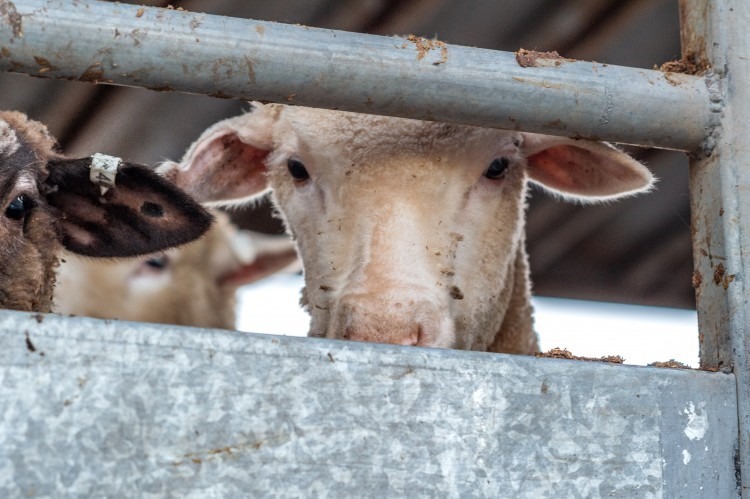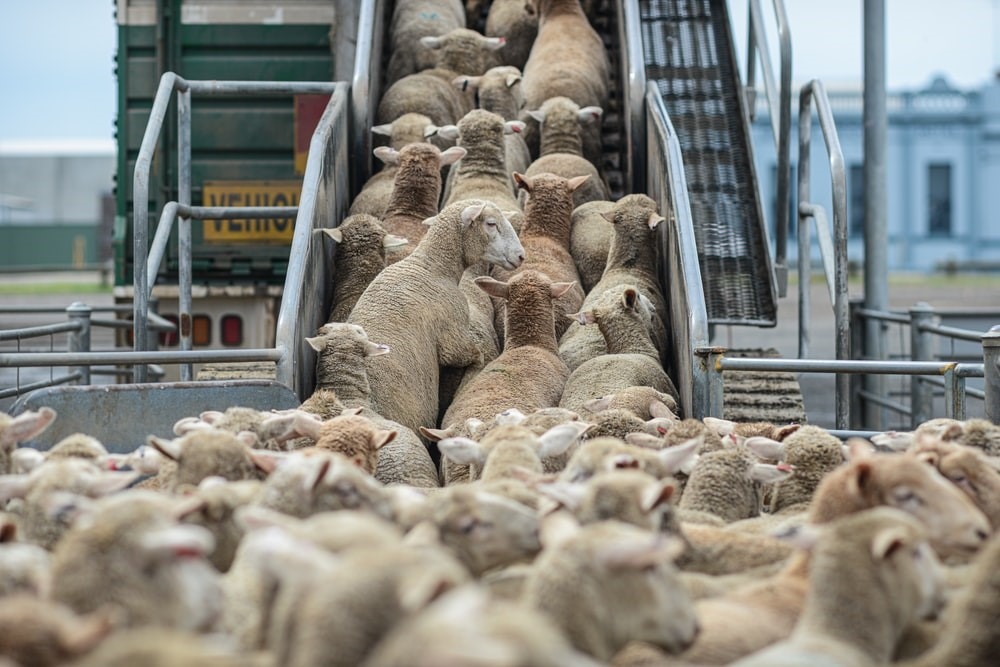 Clive Phillips is an Associate at the Curtin University Sustainable Policy Institute, and the Former Director of the Centre for Animal Welfare and Ethics. In 2012, he was awarded the Voiceless Eureka Prize for Scientific Research that Contributes to Animal Protection, and has been a long-serving member of the Voiceless Scientific Expert Advisory Council. In this role, he recently reviewed our high school educational resources discussing live export. We sat down for a chat with Clive to learn more about his important research exploring the animal welfare impacts of live export.
Clive Phillips is an Associate at the Curtin University Sustainable Policy Institute, and the Former Director of the Centre for Animal Welfare and Ethics. In 2012, he was awarded the Voiceless Eureka Prize for Scientific Research that Contributes to Animal Protection, and has been a long-serving member of the Voiceless Scientific Expert Advisory Council. In this role, he recently reviewed our high school educational resources discussing live export. We sat down for a chat with Clive to learn more about his important research exploring the animal welfare impacts of live export.
Why did you decide to focus on this type of research?
In the early years of my career, I travelled on some of the live export ships to conduct industry-funded research. I wasn’t happy with the working relationship with the live export industry and believed my independence could be compromised if I continued. As the research funding from the live export industry is matched by the Australian Government, I also felt this was an unethical use of taxpayers’ money, particularly because surveys indicate that a majority of the Australian public do not support live export.
Related Blog: My 57 Voyages: Cruelty Onboard Australia’s Live Export Ships.
I had seen for myself that the conditions for the sheep on board ships were not providing good welfare standards. However, little was known about sheep welfare during ship transport in comparison to road transport, in large part due to the fact that researchers are rarely allowed on board Australian ships. I was determined to change that and accepted several PhD students to undertake research studies. My team of researchers investigated the impacts of ammonia, ship motion and other potential stressors on sheep.

What were some of your most significant research findings?
Sheep appear to be particularly stressed during live export by high temperatures as they approach the Middle East. We know this because mortality increases on hot days. When we recorded their heart rate and behaviour under different conditions it appeared that high stocking densities and ship movement stressed the sheep as well. We also offered some of them sickness medication and discovered that those not administered the medication appeared to experience something akin to sea-sickness in humans.
Related Blog: Bearing Witness: The Australia-Israel Live Export Trade.
In your opinion, is it possible for the live export industry to operate in a way that maintains good animal welfare?
It would theoretically be possible for better conditions to be provided. For example, by providing air-conditioning, installing better stabilisers to prevent the ship rolling, and removing the faeces and urine that the animals stand in. However, these would all be hugely expensive and would probably make the trade uneconomic to run.
You’ve been involved in numerous law and policy consultations with government and industry regarding live export. Do you think that industry and government adequately listen to the science on this issue?
Government has become more willing to accept that the industry must change, but still baulks at major change. They know that most Australians do not support the industry, but still feel the need to provide support to live export. The trade provides an opportunity for sheep farmers to get higher prices in the Middle East than they would get for their animals in Australia. However, it is my belief that if the industry is harming the environment, the animals and the people eating the products, a responsible and representative government must look at helping farmers transition to a path of more sustainable agriculture.
We cannot expect the operators to conduct impartial research. Their very livelihood is at stake because they have lost their social licence to operate. There are several ways in which research results can be made to favour the funders. First, lots of research studies can be conducted and only those producing favourable results reported. Secondly, the work can be micromanaged by the industry, for example by making sure that only things that are unlikely to show major detrimental effects of live export are measured, such as weight change of the sheep during the journey (most do not lose weight) and neglecting to measure, for example, the mental and emotional state of the sheep. The industry may avoid researching key welfare issues, such as stocking density of sheep on board, then make the argument that changes will only be considered ‘when there is scientific evidence to support change’.
It is wrong for the government to allow ‘public good’ research to be funded by the very industry that threatens the ‘public good’. You would not allow the oil industry to investigate oil spillage effects on the environment, so why is the live export industry allowed to control most of the research into their industry?

What are the consequences of this funding system?
In the COVID-19 world, there is enormous pressure on universities to rely on outside funding to support their teaching and research, as they have lost billions of dollars in revenue from international students. We are in danger of selling out our best institutions to industry, with disastrous consequences for the country. People are losing confidence in the integrity of these formerly hallowed institutions.
For nearly ten years I have worked to get animal welfare science in the public domain, through my open access journal, Animals. It is now the leading journal publishing animal welfare studies. Previously the research results were published in subscription-only journals and therefore only available in university libraries and to personal subscribers. Little of the industry-funded research is ever published, especially research that doesn’t align with their interests.
Where to from here?
The people of Australia must take back control over contentious practices in agriculture, and one of the most significant is sending animals thousands of kilometres in a ship to experience unbearable heat, high seas and living in their own excreta for weeks on end.
Read more from Clive Phillips:
- Read his articles on The Conversation.
- Read his most recent book, The Animal Trade.
- Read his academic research.
Explore our educational resources on the topic of live export:
- Access Voiceless’s latest Animal Protection Education (APE) high school resources on the topic of live export, including an engaging video, a beautifully designed fact sheet and professionally developed lesson plans.
- Access Voiceless’s Animal Law Education (ALE) tertiary resources exploring animal law and policy reform, featuring a podcast with some of Australia’s foremost animal law experts discussing the challenges of achieving animal law reform, including discussion of the movement to ban live export.
- Learn more about live export on our Hot Topics page here.
Voiceless Blog Terms and Conditions: The opinions expressed on the Voiceless Blog are those of the relevant contributors and may not necessarily represent the views of Voiceless. Reliance upon any content, opinion, representation or statement contained in the article is at the sole risk of the reader. Voiceless Blog articles are protected by copyright and no part should be reproduced in any form without the prior consent of Voiceless.

